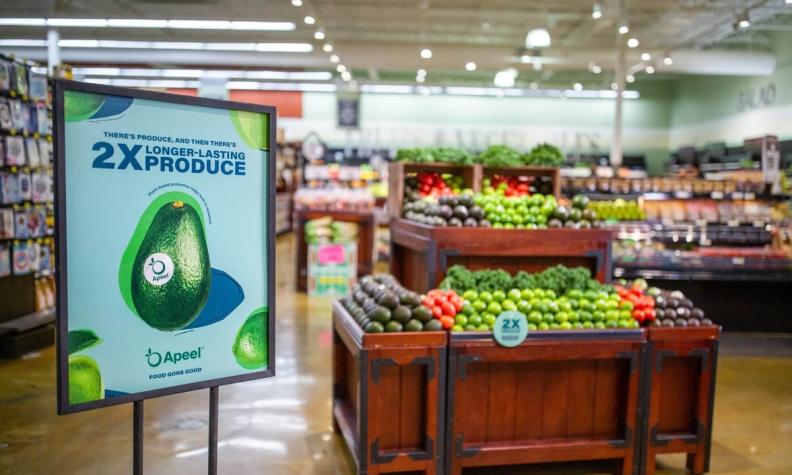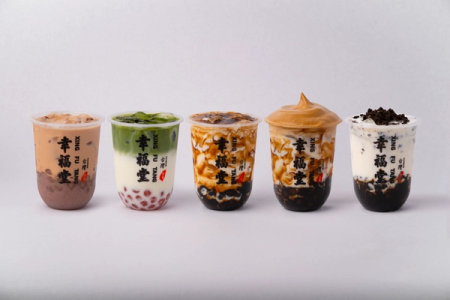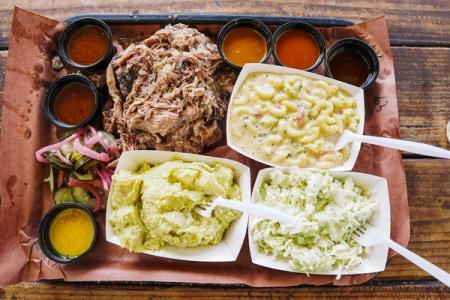We caught up with their Senior Director of Sustainability, Jessica Vieira, PhD to chat about the science of sustainability.
Apeel & The Science of Sustainability
We caught up with their Senior Director of Sustainability, Jessica Vieira, PhD to chat about the science of sustainability.
Apeel & The Science of Sustainability

The magnitude of an issue like food waste requires many creative solutions. We are constantly inspired by the sustainable companies who are in the same fight as us, and the innovations that make a true impact.
At Too Good Go To, we work to connect our users with surplus food to keep it from going to waste… but what if there was a way for this food to retain its freshness, keeping it on the shelf for longer? Enter Apeel, a new company that is transforming the way we consume produce. Apeel adds a layer of plant-based protection on the surface of fruits and vegetables, which keeps moisture in and oxygen out, resulting in produce that lasts twice as long.
We recently caught up with their Senior Director of Sustainability, Jessica Vieira, PhD to chat about the science of sustainability and thinking outside the box to tackle food waste. Read on below!

In not-so-scientific terms, what exactly is Apeel and how does it work?
Apeel is a family of edible, plant-derived coatings that create a protective “peel” on the outside of produce that slows the water loss and oxidation -- the primary causes of spoilage. Produce protected by Apeel lasts twice as long without refrigeration, which means less food waste for farmers, suppliers, retailers, and ultimately the consumer at home.
We share the dream of living in a world without food waste and are tackling it from two pretty different angles. What inspired Apeel to innovate around food preservation as a way of eliminating waste?
Globally one-third to half of all food produced for consumption goes to waste. Fresh food is a huge culprit here because of its perishability and high rate of spoilage. This waste isn’t only a factor in global hunger - today, one in nine people goes hungry - food waste is also one of the largest contributors to climate change, amounting to 8% of global greenhouse gas emissions. Many don’t realize this, but that’s why reducing food waste is regarded to be the most impactful way to slow climate change. We wonder, why do so many people go hungry despite so much food being produced? Often the challenge isn’t whether we can grow enough food — it’s getting these nutritious fruits and vegetables to consumers before they spoil. If we wasted less food, we could feed more people. But how do we stop food from going bad?
It’s about creating a more sustainable food system by using the power of nature to enable longer-lasting produce that fights food waste from farm to kitchen. By extending the shelf-life of produce, Apeel gives farmers, growers, retailers, and shoppers more time to ship, store, sell and consume fruits and vegetables. We’re taking a holistic approach, focusing on the issue of perishability and reducing the rate of spoilage across the entire value chain, and creating market linkages to empower a more participatory food system.
What are you most excited about as the Director of Sustainability? Do you see even more areas of opportunity in the food preservation world?
I’m most excited by the opportunities to further expand the distribution of Apeel in emerging markets, where the impacts of our technology can be even more transformative. In areas where cold chain infrastructure is limited or unreliable, food loss occurs earlier in the supply chain, and growers’ income opportunities are limited with a lesser ability to trade. Through initial pilot programs and our partnership with the IFC, we’re learning that producers in emerging markets can leverage our technology as a way to increase access to trade lanes and higher value markets, while reducing food loss in the process. The democratization of climate-smart innovations in food preservation gives growers in these contexts more time - opening up possibilities to leapfrog the cold chain, reduce food loss and waste, and still meet the growing demand for healthy and nutritious food across the globe.

What do you think is the biggest misconception about food waste or sustainability?
Modern produce supply chains have been optimized with a fixed perishability rate in mind, and individual actors within the supply chain are incentivized to optimize what happens from point A to point B or B to C, etc. The current way that food moves through the system is calibrated so meticulously based on previous supply and demand expectations, that when the system is stretched, it breaks. Most food waste happens in this misalignment of supply and demand, and this is a tax that we absorb every year: it’s inflating food prices, contributing to food insecurity and adding to the constantly surmounting pressures that we face in trying to address climate change. We’re excited to say that we believe we are turning a corner to truly advance the optimization of global food supply chains. It requires the integration of new technology that will help balance the supply and demand for fresh produce in order to further reduce waste. This is done in part by giving suppliers/distributors a level of data intelligence to help determine quantifiable data such as stage and predicted length of ripeness, freshness, nutritional density, and other indicators of quality. As a result, key players throughout the supply chain can determine smarter ways to use that time by optimizing distribution in order to reduce waste.
Additionally, a common misconception is that the climate impacts associated with food waste occur once that food reaches a landfill; however, a majority of the 8% of global greenhouse gas emissions associated with wasted food occur upstream in the supply chain. When you throw away a piece of food, you’re throwing away all of the resources and emissions required to grow, package, store and distribute that food. To truly make a dent in the climate impacts of food waste, we need to be focused on solutions that prevent food waste in the first place, not just those that divert it from landfills.
We’ve dug into the various stages of food waste & loss on Too Good To Go’s knowledge hub. Where does Apeel sit on the food supply chain?
Once the Apeel product is applied upstream in the supply chain, it slows down the rate of spoilage, enabling reductions in food loss and waste throughout every step of the supply chain from distribution to retail and ultimately in consumers’ homes — thereby increasing the efficiency of Earth's resources required to feed a global population. When all touchpoints throughout the food supply chain have more time with fresh produce, it means food businesses can be more flexible with their changing operations and reduce waste. Additionally, Apeel produce has been a preferred choice for shoppers because there’s more time to enjoy it and less likelihood of it going to waste at the household level.
You’ve already saved approx 70 million pieces of produce from going to waste - that’s a huge accomplishment! What sort of impact does this translate into for both our planet and for the average consumer?
We’ve seen a lot of exciting progress in our Life Cycle Assessment studies. For example, in 2020, Apeel saved more than 5 million avocados from landfill, resulting in more than 1 billion liters of water conserved— which is enough water to fill 450 Olympic Pools— and more than 2,000 mTs CO2-eq of GHG emissions avoided, which is the same as planting 27,000 trees.
And over the last 18 months, retailers using Apeel enabled a measurable impact on food waste by preventing an estimated 4.7 million limes from going to waste. This resulted in 250 million liters of water conserved — enough to fill 100 Olympic-sized swimming pools, and 230 mTs CO2-eq of GHG emissions avoided - equivalent to planting 3,900 trees.
This is just the beginning of what we can do to fight the global food waste crisis and climate change.

Apeel is available across the US via Imperfect Foods, at Kroger stores and other local markets. To learn more about Apeel, and see where you can purchase their produce near you, visit their website at: https://www.apeel.com/find-us
Be sure to also follow them on Instagram and Twitter for their latest news and food waste fighting tips.
